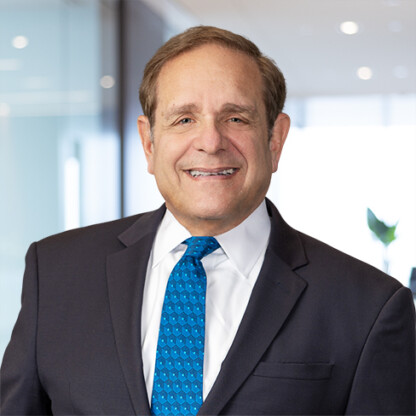The Face of DOL is New, the Name is Not; Trump Picks Scalia for Secretary of Labor
22 July 2019

This past Thursday, President Donald Trump announced that he would nominate Eugene Scalia to be the next secretary of labor. Readers will recall that the current secretary, Alexander Acosta, resigned on July 12, 2019. Acosta was subjected to much criticism for his actions many years earlier when he was the U.S. Attorney for the Southern District of Florida, the office that is accused of allowing Epstein to escape significant sentencing for his sex crimes.
The Scalia name should instantly remind readers of deceased Supreme Court Justice Antonin Scalia. In fact, the secretary-designate is Justice Scalia’s son. However, no one should conclude that Eugene Scalia got the nomination based on name recognition alone because he is in fact an accomplished attorney who has a long and distinguished record in the field of labor and employment law. Among his many accomplishments, he served as solicitor for the Department of Labor (DOL) under President George W. Bush.
Like his dad, Eugene Scalia has a long record of adhering to and advocating for conservative political views. As a labor lawyer, he has a track record of representing major employers in battles against labor unions. He is also a longstanding member of the Federalist Society, a group that advocates for conservative and libertarian reforms to the legal system. As a result, the nominee is likely to face a tough confirmation hearing in the Senate at the hands of liberal Democrats and pro-union advocates who have already stated their opposition. Senate Minority Leader Chuck Schumer has already stated his objections. In fact, Scalia could not pass Senate confirmation when he was nominated solicitor in 2001 and only served under a recess appointment.
Separate and apart from the criticism he faced for his role in the Epstein scandal, Acosta was also criticized by many in the Trump administration for slow-walking regulatory reform and for not pushing back harder on some of the more liberal changes made during the Obama administration. Once it became known that Acosta would be leaving, but before the nomination of Scalia, the Trump administration designated Patrick Pizzella as the acting secretary of labor. Many pundits believe Pizzella, who will remain acting secretary until Scalia is confirmed, confirmation is finalized, was put into that role in order to more rapidly promulgate pro-business regulatory reform in the labor arena. Historically, acting cabinet members were expected to act in a “placeholder” role until a permanent selection was confirmed. But alas, these are not normal times. Pizzella also has a long record of advocating for pro-business regulatory reform. As such, Pizzella may not wait for a Scalia confirmation in the Senate to start the ball rolling on major regulatory reform at DOL. Employers need to stay tuned to developments that will impact their workplaces.
Disclaimer
This blog is made available by Foley & Lardner LLP (“Foley” or “the Firm”) for informational purposes only. It is not meant to convey the Firm’s legal position on behalf of any client, nor is it intended to convey specific legal advice. Any opinions expressed in this article do not necessarily reflect the views of Foley & Lardner LLP, its partners, or its clients. Accordingly, do not act upon this information without seeking counsel from a licensed attorney. This blog is not intended to create, and receipt of it does not constitute, an attorney-client relationship. Communicating with Foley through this website by email, blog post, or otherwise, does not create an attorney-client relationship for any legal matter. Therefore, any communication or material you transmit to Foley through this blog, whether by email, blog post or any other manner, will not be treated as confidential or proprietary. The information on this blog is published “AS IS” and is not guaranteed to be complete, accurate, and or up-to-date. Foley makes no representations or warranties of any kind, express or implied, as to the operation or content of the site. Foley expressly disclaims all other guarantees, warranties, conditions and representations of any kind, either express or implied, whether arising under any statute, law, commercial use or otherwise, including implied warranties of merchantability, fitness for a particular purpose, title and non-infringement. In no event shall Foley or any of its partners, officers, employees, agents or affiliates be liable, directly or indirectly, under any theory of law (contract, tort, negligence or otherwise), to you or anyone else, for any claims, losses or damages, direct, indirect special, incidental, punitive or consequential, resulting from or occasioned by the creation, use of or reliance on this site (including information and other content) or any third party websites or the information, resources or material accessed through any such websites. In some jurisdictions, the contents of this blog may be considered Attorney Advertising. If applicable, please note that prior results do not guarantee a similar outcome. Photographs are for dramatization purposes only and may include models. Likenesses do not necessarily imply current client, partnership or employee status.
Author(s)
Related Insights
07 November 2024
Manufacturing Industry Advisor
What Every Multinational Company Should Know About . . . Dawn Raids
In today’s regulatory landscape, dawn raids — surprise, on-the-spot government inspections — have become increasingly prevalent, especially in Europe, Asia, and South America, where regulatory scrutiny is intensifying.
05 November 2024
Health Care Law Today
Cancer Drugs: Clinical Trial Issues for Antibody Drug Conjugates (ADCs)/Antibody Therapeutics
Antibody Drug Conjugates (ADCs) are a class of small molecule drugs and an antibody conjugated together by a chemical linker.
05 November 2024
Health Care Law Today
New HCPCS for Advanced Primary Care Management
The Center for Medicare & Medicaid Services issued the display copy of the final Calendar Year 2025 Physician Fee Schedule on November 1, 2024, which included three new Healthcare Common Procedure Coding System codes for advanced primary care management.
